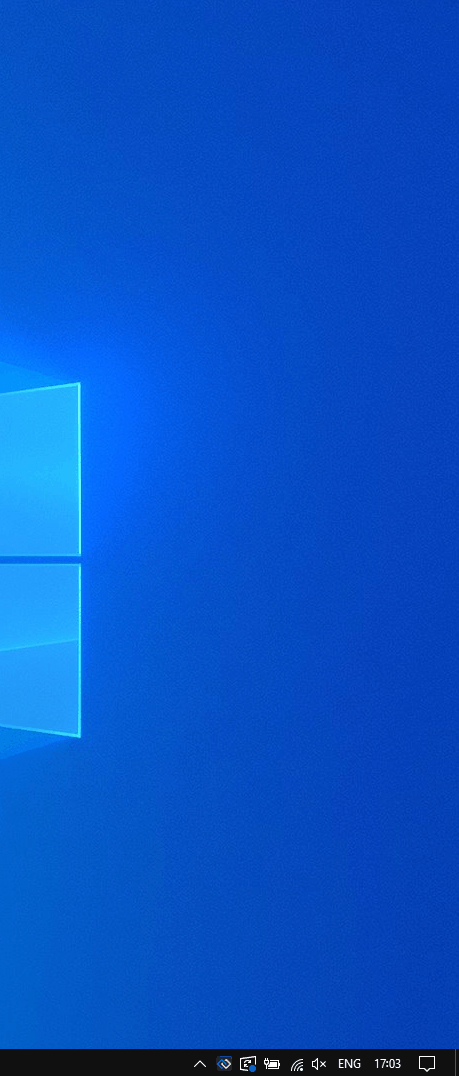
Security News
Risky Biz Podcast: Making Reachability Analysis Work in Real-World Codebases
This episode explores the hard problem of reachability analysis, from static analysis limits to handling dynamic languages and massive dependency trees.
@interopio/components-react
Advanced tools
The @interopio/components-react library enables you to create your own Components App that will provide system apps for io.Connect Desktop (Channel Selector, dialogs, notifications and more). The library allows complete customization of the io.Connect Desktop system apps. The provided default components can be replaced or extended with your custom ones.
Customized Notification Panel for io.Connect Desktop with custom header, footer and custom text on the buttons for clearing notifications:

src/assets - contains common asset files;src/components - contains default components for shared UI elements like buttons, forms, icons and more;src/contexts - contains context provider components that are used across the io.Connect Desktop system apps;src/features - contains the default components and hooks for all customizable io.Connect Desktop system apps;src/hooks - contains hooks that are used across the io.Connect Desktop system apps;src/utils - contains reusable functions that are used across the io.Connect Desktop system apps;For a io.Connect Desktop project, you must have io.Connect Desktop 9.0 or later.
To use the @interopio/components-react library in your project, execute the following command:
npm install @interopio/components-react
Storybook is integrated into the project and the currently supported components are added to it. You can use it during development to test components and visualize states more easily.
To build Storybook:
npm run build-storybook
To run Storybook:
npm run storybook
The @interopio/components-react library provides default components and hooks which you can use to build your own Components App for io.Connect Desktop by using, modifying or replacing the available components and functionalities.
The following example demonstrates how to provide customized components for the Channel Selector and the dialogs apps of io.Connect Desktop:
import React, { Suspense, lazy } from "react";
import { RouterProvider, createHashRouter } from "react-router-dom";
import { IODialogs } from "@interopio/components-react";
// Using the default io.Connect themes.
import "@interopio/theme";
// Your custom Channel Selector.
const CustomChannelSelector = lazy(() =>
import("./my-components/CustomChannelSelector")
);
// Your custom dialog component.
const CustomDialog = () => {
const { DialogsProvider } = IODialogs;
const Dialog = lazy(() => import("./my-components/CustomDialog"));
return (
<DialogsProvider>
<Dialog />
</DialogsProvider>
);
};
const Loading = () => <div>Loading...</div>;
// Routes used by io.Connect Desktop for loading the system apps.
const routes = [
{
path: "channel-selector",
element: <CustomChannelSelector />,
},
{
path: "dialogs",
element: <CustomDialog />,
},
];
// By default, io.Connect Desktop loads its system apps from the file system.
// If your custom apps are hosted remotely, use `createBrowserRouter()` instead.
const router = createHashRouter(routes);
const App = () => {
return (
<Suspense fallback={<Loading />}>
<RouterProvider router={router} />
</Suspense>
);
};
export default App;
To replace the default Components App of io.Connect Desktop, you must build your app and place it in the %LocalAppData%\interop.io\io.Connect Desktop\Desktop\assets\components folder.
The @interopio/components-react library currently contains default components and hooks for the following io.Connect Desktop system apps:
FAQs
React components for the interop.io platform.
We found that @interopio/components-react demonstrated a healthy version release cadence and project activity because the last version was released less than a year ago. It has 11 open source maintainers collaborating on the project.
Did you know?

Socket for GitHub automatically highlights issues in each pull request and monitors the health of all your open source dependencies. Discover the contents of your packages and block harmful activity before you install or update your dependencies.

Security News
This episode explores the hard problem of reachability analysis, from static analysis limits to handling dynamic languages and massive dependency trees.

Security News
/Research
Malicious Nx npm versions stole secrets and wallet info using AI CLI tools; Socket’s AI scanner detected the supply chain attack and flagged the malware.

Security News
CISA’s 2025 draft SBOM guidance adds new fields like hashes, licenses, and tool metadata to make software inventories more actionable.